Supporting Democratization and Reconciliation Process in the Western Balkans
The team of the Strategic Analysis closely cooperates with GLOBSEC on the implementation of the project „Supporting Democratization and Reconciliation Process in the Western Balkans“, supported by the International Visegrad Fund.
The project aims at supporting the democratization and reconciliation process in the region by engaging and raising the capacities of young professionals and journalists from the six Western Balkan countries, for enhancing trust and peace-building efforts in societies. While reconciliation is crucial for stabilization and sustainable development of the region, it is also one of the key issues which need to be solved before further EU enlargement. There is no doubt, that for the successful reconciliation process the local initiative, ownership, and political will are critical, but at the same time, the financial and expert support of the external partners to enhance these efforts plays an important role.
The reconciliation process is complex and requires the involvement of multiple actors. GLOBSEC identified groups of stakeholders, who play an important role in promoting democracy, multiplying reconciliation efforts, and overcoming the divisive narratives in their respective communities, countries, and the region, as a whole: young professionals (leaders of CSOs, representatives of political parties), journalists and bloggers. Through the project activities, GLOBSEC together with its partners in the V4 and the WB identified the young leaders of the local communities in all Western Balkan countries, trained them in various of the skills of democracy promotion, media literacy, negotiation & conflict resolution, reconciliation & policymaking, and is subsequently developing a network of “Youth Ambassadors for Reconciliations” who will continue to promote ideas of regional cooperation.
Within the framework of the project, three policy proposals for the national and EU decision-makers on the development of the Western Balkan region were developed by young professionals.
- Raising Awareness about the Role of the EU in the Western Balkans and Potential Accession
The EU and the Western Balkans (WB6) have to renew mechanisms for cooperation. This will enable acceleration of the accession process and the implementation of highly necessary reforms towards the achievement of desired standards for us, young people and other citizens in the region. Hence, the Conference on the Future of Europe is an opportunity to create a genuine dialogue between European citizens and institutions regarding the future of Europe and the big challenges of our time. Europe needs to take the reins and deliver on issues that lie at the heart of citizens’ interests at the economic, social, health and security level – at the European, national, and local level, and beyond its borders. In view of the challenges the EU currently faces, the need to advance European integration has become more pertinent than ever. The name of the Conference itself echoes the necessity of encouraging and including — in a formal settlement — the contributions from governmental and non-governmental representatives of European countries which are not members of the EU, with a special focus on the Western Balkans. Building upon the EU’s long-standing promise of full accession, as well as, their incremental exposure to and engagement with a set of European legal norms, structures, policies and programmes, the Western Balkans societies should enjoy the political right of proportionally influencing the process and outcomes of the Conference on the Future of Europe.
Read further: Policy-Proposal_Awareness-about-the-Role-of-the-EU
2. Fraudulent electoral process: How to foster free, fair, and transparent elections in the Western Balkans
Regulations and rules for free and fair election processes are the central pillars of democracy and an integral part of the Copenhagen criteria for the EU membership of the Western Balkan countries. Elections are considered a symbol of democracy, i.e. the major factor in the stabilization and democratization of a country as well as an important part of a democratic political process. The Western Balkans Strategy requires free and fair elections and emphasizes the necessity of the proper implementation of the recommendations concerning the electoral reform. Free and fair elections are one of the basic criteria of democracy. Yet, if the electoral system is not transparent and tracks of corruption are found in the process itself, then it is infeasible to have free and fair elections since democracy based on such an election may be fraudulent itself. The electoral legislation of the Western Balkan countries (WB6) needs to be in line with the legislation of the European Union. The EU condition influences the improvement of the electoral process and urges local actors to fight corruption, support greater transparency, and respect the voice of people exercising the fundamental right free from intimidation and violence. All six countries in the region have to address the OSCE/ODIHR recommendations.
Read further: Policy-Proposal_Fraudulent-electoral-process
3. Regional Cooperation and Intra-state Reconciliation
One of the prominent issues in the Western Balkan (WB6) countries is the detrimental effect of historical enmities and recent conflicts on intra-state cooperation. Labour markets in the Western Balkans suffer from chronically low employment as well as lengthy unemployment periods1
and a relatively low level of development. There is also a significant lack of connecting infrastructure between the WB6 countries. We call for the development of a comprehensive and all-encompassing tourism program that can lead to economic increase and cultural exchange. Through the development of regional exchange tours with cultural and historical elements as well as cross-border cooperation on ecological initiatives, reconciliation can take place between the citizens of the WB6. Connecting infrastructure can play a key role in reconciliation processes as it facilitates direct exposure to ‘others’ which may, in turn, lead to the dissolution of stereotypes. We posit that the role of civil society is crucial in streamlining this initiative and consolidating the peace process.
Read further: Policy-Proposal_Regional-Cooperation-and-Intra-state-Reconciliation
GLOBSEC Forum, June 15-17, 2021
The policy proposals were presented by selected participants to EU and Western Balkan stakeholders and policy-makers within the framework of the GLOBSEC 2021 Bratislava Forum, June 15-17, 2021.
- Visit of the Slovak Ministry of Foreign and European Affairs
- Visit of the Slovak Ministry of Foreign and European Affairs
- Meeting with the Marianna Neupauerová, Deputy Executive Director and project managers of the International Visegrad Fund
- Meeting with the Marianna Neupauerová, Deputy Executive Director and project managers of the International Visegrad Fund
- Meeting with Zeljana Zovko, Vice-Chair, Committee on Foreign Affairs, European Parliament and Vladimir Bilcik, Chair of the Delegation to the EU-Montenegro Stabilisation and Association Parliamentary Committee, European Parliament, moderated by Pavel Havlicek, Research Fellow, AMO Research Center
- Meeting with Zeljana Zovko, Vice-Chair, Committee on Foreign Affairs, European Parliament and Vladimir Bilcik, Chair of the Delegation to the EU-Montenegro Stabilisation and Association Parliamentary Committee, European Parliament, moderated by Pavel Havlicek, Research Fellow, AMO Research Center
- Meeting with Zeljana Zovko, Vice-Chair, Committee on Foreign Affairs, European Parliament and Vladimir Bilcik, Chair of the Delegation to the EU-Montenegro Stabilisation and Association Parliamentary Committee, European Parliament, moderated by Pavel Havlicek, Research Fellow, AMO Research Center
- Meeting with Zeljana Zovko, Vice-Chair, Committee on Foreign Affairs, European Parliament and Vladimir Bilcik, Chair of the Delegation to the EU-Montenegro Stabilisation and Association Parliamentary Committee, European Parliament, moderated by Pavel Havlicek, Research Fellow, AMO Research Center
- Discussion with Amb. Miroslav Lajcak, EU Special Representative for the Belgrade-Pristina Dialogue and Other Western Balkan Regional Issues, European Commission and Katarina Mathernova, Deputy Director-General for Neighbourhood Policy and Enlargement Negotiations, European Commission, moderated by Jan Cingel, Founder and CEO of the Strategic Analysis, Copyright Peter Brichta 2021 :: www.pbphoto.sk ::
- Discussion with Amb. Miroslav Lajcak, EU Special Representative for the Belgrade-Pristina Dialogue and Other Western Balkan Regional Issues, European Commission and Katarina Mathernova, Deputy Director-General for Neighbourhood Policy and Enlargement Negotiations, European Commission, moderated by Jan Cingel, Founder and CEO of the Strategic Analysis, Copyright Peter Brichta 2021 :: www.pbphoto.sk ::,
- Discussion with Amb. Miroslav Lajcak, EU Special Representative for the Belgrade-Pristina Dialogue and Other Western Balkan Regional Issues, European Commission and Katarina Mathernova, Deputy Director-General for Neighbourhood Policy and Enlargement Negotiations, European Commission, moderated by Jan Cingel, Founder and CEO of the Strategic Analysis, Copyright Peter Brichta 2021 :: www.pbphoto.sk ::
- Discussion with Amb. Miroslav Lajcak, EU Special Representative for the Belgrade-Pristina Dialogue and Other Western Balkan Regional Issues, European Commission and Katarina Mathernova, Deputy Director-General for Neighbourhood Policy and Enlargement Negotiations, European Commission, moderated by Jan Cingel, Founder and CEO of the Strategic Analysis
- Group photo with Amb. Miroslav Lajcak
- Discussion with Milena Lazarevic, Programme Director, European Policy Centre, Serbia, Tena Prelec, Research Fellow, University of Oxford, Damir Marusic, Senior Fellow, Atlantic Council, Krsevan Antun Dujmovic, Senior Associate, Intitute for International Relations, Croatia, Nemanja Todorović Štiplija, European Western Balkans
- Discussion with Milena Lazarevic, Programme Director, European Policy Centre, Serbia, Tena Prelec, Research Fellow, University of Oxford, Damir Marusic, Senior Fellow, Atlantic Council, Krsevan Antun Dujmovic, Senior Associate, Intitute for International Relations, Croatia, Nemanja Todorović Štiplija, European Western Balkans
- Discussion with Milena Lazarevic, Programme Director, European Policy Centre, Serbia, Tena Prelec, Research Fellow, University of Oxford, Damir Marusic, Senior Fellow, Atlantic Council, Krsevan Antun Dujmovic, Senior Associate, Intitute for International Relations, Croatia, Nemanja Todorović Štiplija, European Western Balkans
First Training Session, July 6-8, 2021
The training session for the first group of 10 young professionals selected from all project countries took place from July 6-8, 2021 in Sarajevo, Bosnia and Herzegovina. The focus of this training session was on democracy and the rule of law and their importance for the reconciliation process, media literacy and anti-corruption. The program combined training and workshops, discussions with opinion-makers, and team-building activities. The aim of the session was to develop the skills and knowledge of young professionals through the transfer of experience of project team members, experts, and local partners, so that they can actively support their democratization and reconciliation efforts within their communities.
We were delighted to welcome Agnes Angyal, the Deputy Head of Mission, Embassy of Hungary in Sarajevo, and Patrik Turosik, the Deputy Head of Mission, Embassy of the Slovak Republic in Sarajevo for a discussion with participants about current challenges that the region of Western Balkan faces.
Second Training Session, September 6-7, 2021
The training session for the second group of 18 young professionals selected from all project countries took place from September 6-7, 2021 in Durres, Albania. The focus of this training session was on democracy and the rule of law and their importance for the reconciliation process, media literacy, and anti-corruption. The program combined training and workshops, followed by discussions, and free team-building activities.
The young professionals developed their knowledge and skills to support their active efforts in democratization and reconciliation in their countries.
We were delighted to welcome H.E. Jaroslav Ludva, Ambassador of Czechia to Albania for a discussion with participants.
Online joint workshop: “EU and Western Balkans after the Slovenian Presidency Summit. What does it mean for the region?“, October 29, 2021
On October 29, 2021 GLOBSEC held the last event within the project. The Online joint workshop titled „EU and Western Balkans after the Slovenian Presidency Summit. What does it mean for the region?“ touched upon the EU Western Balkans Summit 2021 which reaffirmed the EU‘s support for the European perspective of the Western Balkans and welcomed the commitment of the Western Balkan partners to the European Union.
The Brdo Declaration from the Summit has reminded us that the European Union feels committed to helping the region and highlighted numerous areas in need of further progress. The Slovenian Presidency of the Council of the European Union underscored the necessity to implement the required reforms, primarily those related to the European Green Deal; resilience; disinformation and third countries´ influence; economics; and the continuous ethnic divisions.
Even though the Slovenian Presidency, which is slowly nearing the end, has brought some positive perspectives for the Western Balkan countries, some critics argue that the region’s place in the EU is unlikely in the foreseeable future. The workshop`s distinguished speakers were: Giulia Cretti, Junior Researcher, Clingendael-Netherlands Institute of International relations; Strahinja Subotić, Programme Manager and Senior Researcher, European Policy Centre; Adnan Ćerimagić, Senior Analyst, European Stability Initiative and Peter Kadvan, South-Eastern Europe and Turkey Department, Ministry of Foreign and European Affairs of the Slovak Republic. Ján Cingel, Founder and CEO, Strategic Analysis provided the introductory remarks and moderation of the workshop
This project is generously funded by:
This project is lead by:
Project partners:
- Association for International Affairs (AMO), the Czech Republic
- Transparency International Hungary Foundation, Hungary
- Political Accountability Foundation, Poland
- Youth Center “Perspektiva”, Albania
- Humanity in Action Bosnia and Herzegovina, Bosnia and Herzegovina

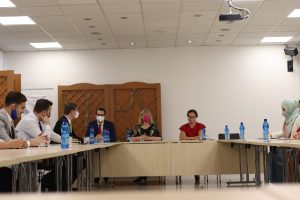

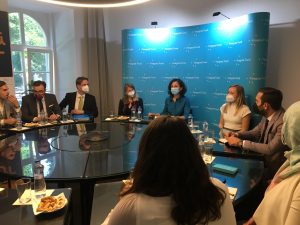
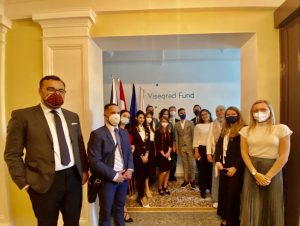
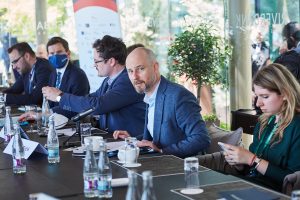

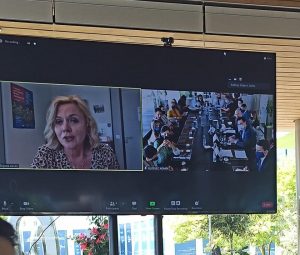


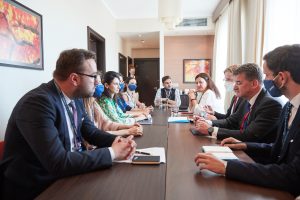
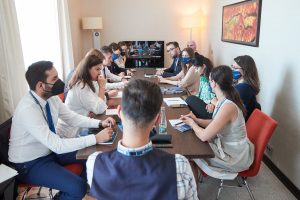
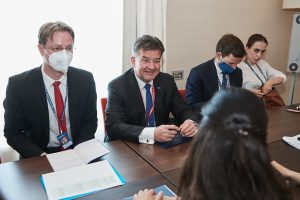
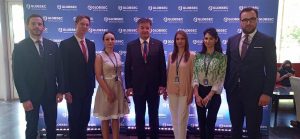
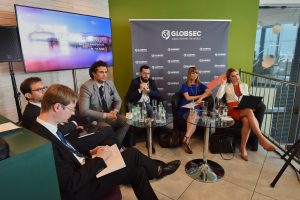
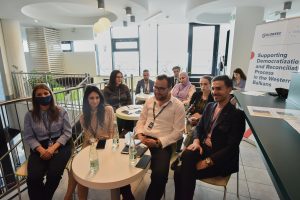
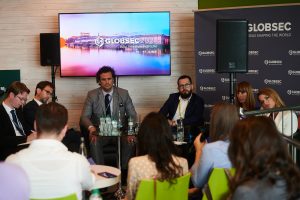
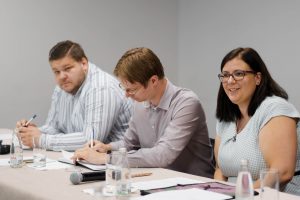
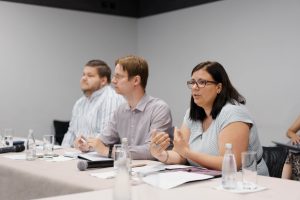
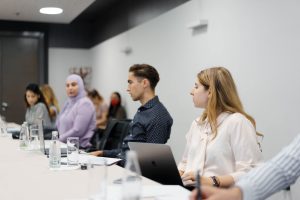
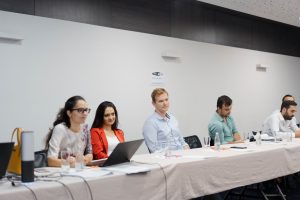
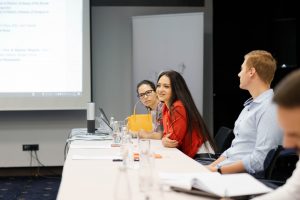
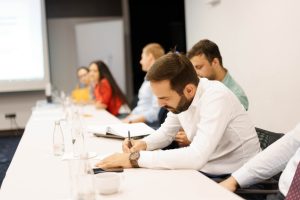
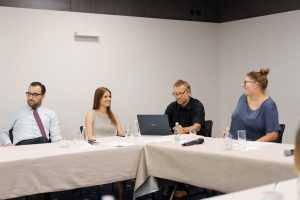
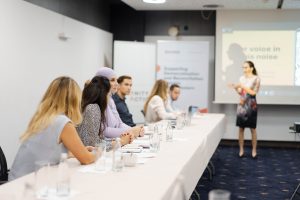
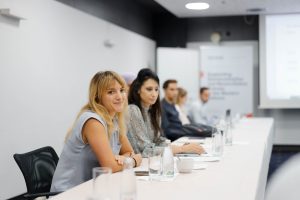
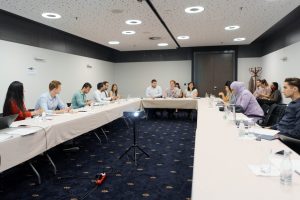
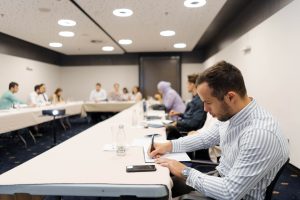
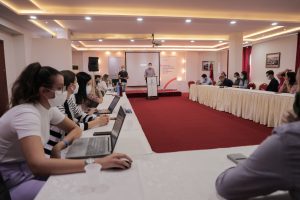
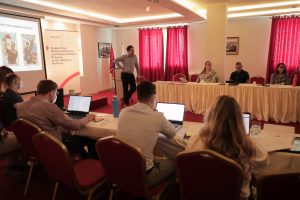
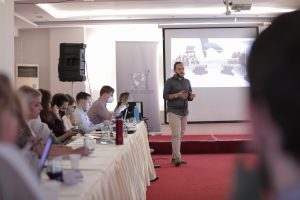
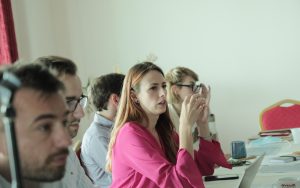

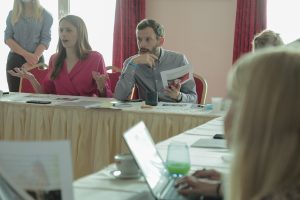
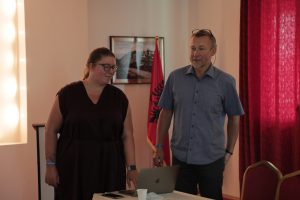
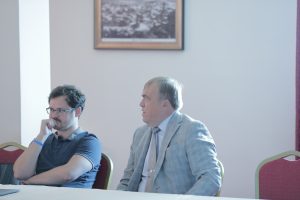
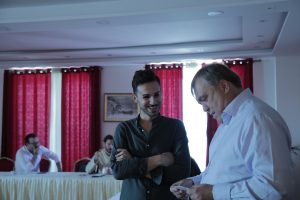

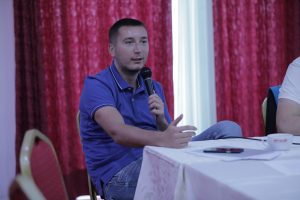
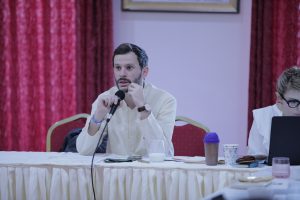
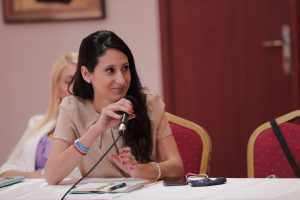
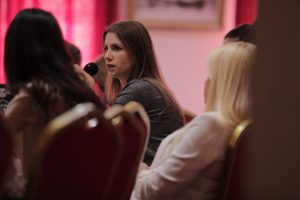


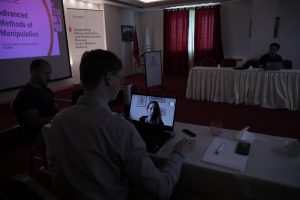
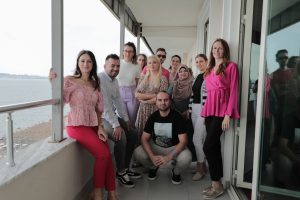








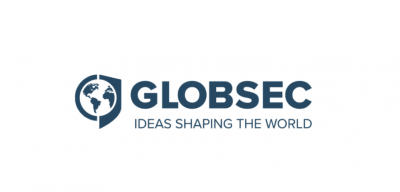
Contact us